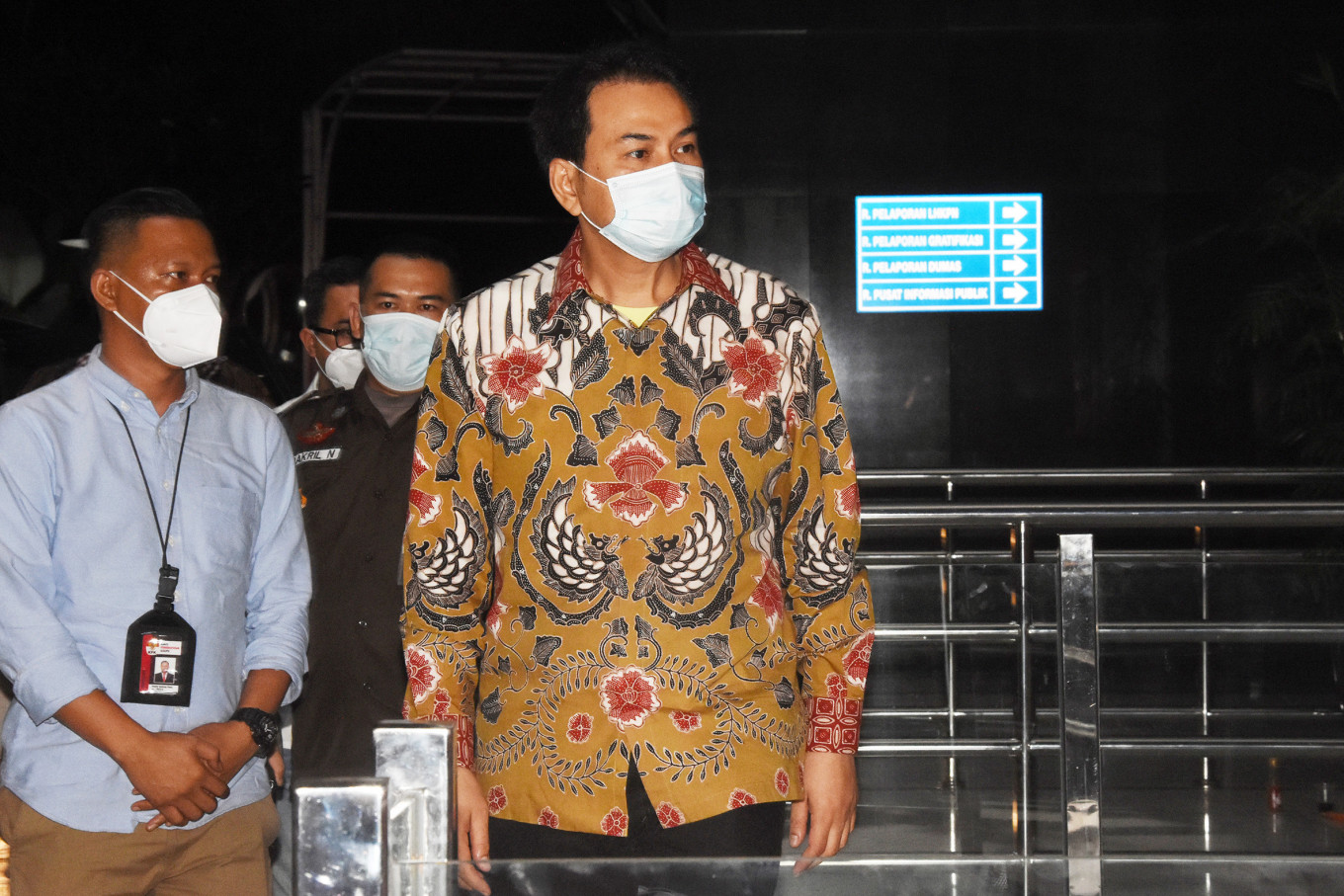Popular Reads
Top Results
Can't find what you're looking for?
View all search resultsPopular Reads
Top Results
Can't find what you're looking for?
View all search resultsCourt controversially grants graft convicts easier terms to seek remission, parole
Change text size
Gift Premium Articles
to Anyone
T
he Supreme Court (MA) recently eased the requirements for graft convicts to file for remissions and paroles in its recent judicial review ruling, in a move that activists say was another example of further deterioration in the national antigraft campaign.
The court’s ruling, handed down on Oct. 28, as reported by kompas.com, essentially makes it easier for graft convicts to apply for remission or parole as it rolled back requirements for the convicts as outlined in the Government Regulation (PP) No. 99/2012, which stipulates terms of the detainees’ release from correctional facilities.
In a judicial review filed by five petitioners, all of whom are currently serving their sentences in the Sukamiskin Penitentiary in West Java, they challenged requirements in the 2012 regulation stipulating that only graft convicts with justice collaborator status and who have fully paid fines and restitution related to their case could apply for a remission or parole.
The petitioners argued that such requirements were in contradiction with higher laws, namely the 1995 Correctional Law.
The bench granted the petitioners demand, arguing that such requirements as outlined in the 2012 law were not in line with the spirit of restorative justice. They added that the rights of the convicts to file for a remission of their sentence should be non-discriminatory.
The bench also argued that the correctional facilities have “full authority” to grant remissions for the inmates, while adding that the authorities at the facilities should also consider the impact of prison overcrowding when deciding whether to grant remissions for inmates.
In granting the petitioners’ demand, the terms of remission were rolled back to a government regulation issued in 1999 that stipulates all convicts, regardless of the severity of their crimes, would be in line for a remission as long as they showed good conduct during their imprisonment.
Despite the court’s recent ruling, Human Rights Ministry’s Corrections Directorate General spokesperson Rika Aprianti told The Jakarta Post on Monday that the ministry was still processing remission applications based on the 2012 regulation, as the government had yet to issue a new regulation in accordance with the court’s ruling.
“As of now, PP 99/2012 is still in effect,” said Rika. “We are still using the [2012] regulation as [the legal basis] for granting remissions for graft convicts.”
The court’s decision has attracted criticism from antigraft activists, with watchdog Indonesian Corruption Watch (ICW) saying the ruling had highlighted the lack of support from the judiciary in the antigraft campaign.
“From this [decision], the public could see that the judiciary is not supportive of anti-corruption efforts,” ICW wrote in a statement on Saturday. “As a consequence of the Supreme Court’s ruling, it will be easier for graft convicts to file for sentence reduction.”
Bivitri Susanti, a constitutional law expert from the Jakarta-based Jentera School of Law, criticized the judges’ line of argument that explained the provisions in the 2012 regulations were not in line with concept of restorative justice.
“We have to understand that the restorative justice approach is not only about seeking win-win solution through mediation to reduce the rates of incarceration. Restorative justice [approach] was developed to help bring justice for the victims, who – in terms of graft crime – is the public,” said Bivitri in a webinar on Tuesday.
“I think the Supreme Court has misinterpreted the restorative justice approach [in their decision].”
Gadjah Mada University’s Center for Anti-Corruption Studies (Pukat UGM) researcher Zaenur Rochman said while he respected the judges’ decision, their arguments were not strong enough to remove the provisions outlined in the 2012 regulation.
He also said that the court had granted many sentence cuts following appeals filed by the graft convicts, further underlining the lackluster antigraft drive in the law enforcement institutions in the country.
“It seems like there are a lot of problems in law enforcement institutions, particularly in their effort to fight against corruption,” said Zaenur in the same webinar.










